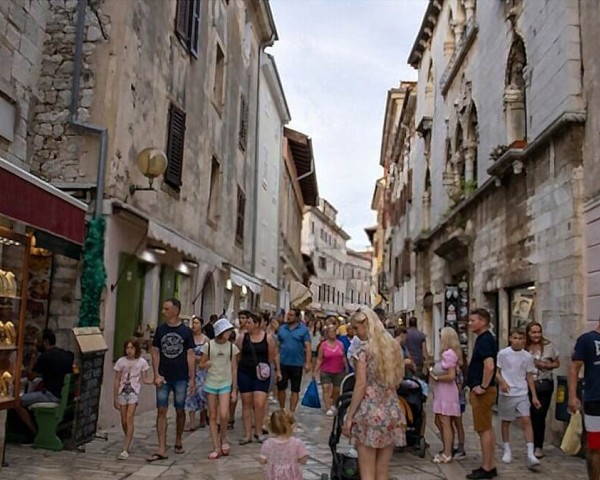As the tourist season in Croatia approaches, challenges affecting the industry for a while now are expected to cause issues, especially with the peak of summer.
Based on current reservations and agency interest, Croatian tourism numbers this year are expected to exceed the figures from 2019.
However, experts point out that it is crucial to consider important aspects of tourism planning beyond mass tourism and profits. These include ecological concerns, transportation, public infrastructure, and pressing social issues. While these topics were previously discussed, they have been forgotten in recent years.
The tourism sector is worried about losing market competitiveness, which has become a new concern. The previous threat of climate change and pollution has taken a back seat.
There is a strong link between ecology and tourism in Croatia, particularly with the upcoming tourist season. If the country’s current approach to tourism management continues to ignore the importance of ecological sustainability, which is crucial for the industry’s long-term viability, it could pose a significant threat to the country’s economy.
“The post-pandemic tourism resurgence will undoubtedly have a negative impact on the environment and wildlife in the form of increased demand,” Hrvoje Radovanovic, the head of the nature protection program of Green Action/Zelena Akcija, stated. The current focus of the tourism industry’s development planning is still primarily geared toward attracting more visitors, extending the season, and promoting tourism in some areas of the country. However, there have been attempts to make Croatian tourism more eco-friendly, with visitors taking the initiative to be more environmentally aware.
As indicated by last year’s water supply issues in many areas of Istria and elsewhere, experts noted that the infrastructure in many sections of Croatia, particularly those near the coast, cannot handle such a high number of tourists. As the number of visitors increases, disposing of their trash and wastewater has become a pressing environmental concern. Additionally, the development of tourism infrastructure, such as concrete pouring and apartment construction, has caused damage to the local ecosystem, making it another essential issue for environmental protection.
Even protected areas have been affected by tourism
If the primary goal of tourism development is the unrestricted growth of visitors and overnight stays, the industry will face increasing environmental pressure.
Unfortunately, there is also a controversial matter of the labor shortage in the tourism industry. The country is estimated to have 60,000 workers who could work as waiters, chefs, bartenders, and other travel service-related jobs. Unfortunately, employers in Croatia, except the more reliable ones like the larger hoteliers, continue to underpay their employees, making it difficult to keep workers from prior Croatian tourism seasons.
Since workers from Central and East Asia are invited to work in Croatia, it is already relatively well known that Croats have been migrating to the northwest of the EU for years.
This summer, the issue of Croatia’s ongoing labor shortage is particularly noticeable. Although it’s undoubtedly nothing new, the labor shortage problem has become more complicated. Croatian employers must realize that they must sacrifice some of their profits to pay their workers better.




